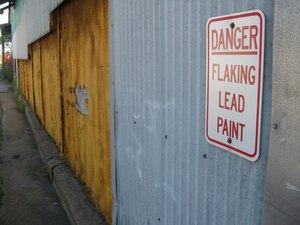
A grant from the EPA will help fund community outreach workers in South Bend to educate families on the risks of lead poisoning.
The national exposure of the Flint, Michigan, lead-poisoned water problem led the way for other communities to take a look at their own lead exposure, particularly a risk that hides in houses built before 1978. An interactive map created by Vox shows the lead risk breakdown for counties across the U.S., where users can see their potential for lead poisoning in their area.
Near Northwest Neighborhood Inc., a neighborhood group in South Bend, Indiana, was recently awarded a $30,000 grant by the Environmental Protection Agency’s (EPA) Environmental Justice Small Grant program to address the high number of lead-poisoned children in U.S. Census Tract 6. Testing data from 2016 showed the area had the highest number of children with elevated lead levels in the state.
The group will use the EPA grant to secure two part-time community outreach workers to educate families on the risks of lead poisoning, and encourage them to get their children tested.
We’ve found that families aren’t taking action unless they’re told about it by someone they trust,” Kathy Schuth, executive director of the neighborhood group, told the South Bend Tribune. “A huge win would be to increase the number of kids tested in Census Tract 6.”
The funds will help provide a handful of free screenings to children, particularly those under the age of 7.
In July, officials in South Bend county were notified that their $2.9 million Housing Authority grant application was rejected by the U.S. Department of Housing and Urban Development. South Bend grants from previous years totaled $5.5 million, and went towards replacing doors and windows with flaking lead paint in high risk areas.
This year’s anticipated grant had already been earmarked to replace lead paint hazards in 150 homes, and officials were left scrambling after the application rejection to come up with other ways to get funding for the projects.
What’s frustrating is that there’s no quick resolution,” Mayor Pete Buttigieg said. “What we’re going to have to do from a city perspective to help is to continue to work for state and federal resources, but not expect them to fix the problem.”
In addition to the EPA grant, the neighborhood group also received a $16,500 grant from the Community Foundation of St. Joseph County, and the city of South Bend has set aside funds in the 2018 budget to help address the elevated lead levels in Census Tract 6.
Copyright © 2025 GovGrantsHelp.com. All rights reserved.
